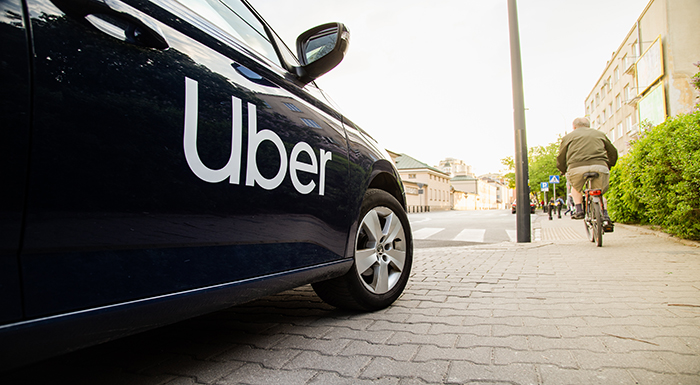
Srujana Katta
DPhil Student
Srujana is a doctoral student at the OII and a member of the Fairwork Project. Her research focusses on digital labour, migration, and resistance.

A month after the UK Supreme Court ruled that Uber drivers are Limb (b) workers, the ride hailing platform announced yesterday that it will pay its drivers a minimum hourly wage, holiday pay and a pension scheme as mandated by the court. Though this might seem like a landmark change in Uber’s working model, the company is still refusing to comply with the legal mandate and compensate drivers for time spent waiting for trips.
The Supreme Court ruling said Uber drivers were entitled to worker entitlements from the time they log in to the time they log off. Uber, however, is committing to these entitlements only from the time the trip is accepted till drop-off. However, similar to how restaurants don’t only pay waiters for the time they are serving tables, ride-share drivers deserve to be paid for the time they spend between rides. Uber’s business model inherently relies on having a large pool of workers waiting to pick up passengers. Many drivers’ waiting times have become even longer during the pandemic, due to the drop in demand, directly affecting their income.
Uber’s new policy fails to comply with our principle of Fair Pay which states that workers should earn at least a minimum wage after taking account of (1) work-related costs and (2) active hours, which includes both direct and indirect hours of work. Uber’s decision includes the former but not the latter, in contravention with the UK Supreme Court’s judgment. Furthermore, their statement does not provide an indication of how ‘vehicle running costs’ will be calculated for each driver, and whether workers or unions will have a say in this calculation. Uber’s statement is also silent on many other aspects that affect workers’ livelihoods, including a due process for disciplinary decisions, which has been a long-standing demand of gig workers in the UK. There is also no mention of sick pay, protection against discrimination and other basic rights that drivers should be entitled to as workers
Despite its shortcomings, Uber’s decision represents a shift from their previous stance that the Supreme Court verdict only applied to a limited number of workers directly involved in the case. More importantly, it signals an important change in Uber’s narrative around its relation to drivers. Over the past years, Uber has been increasingly pressured to admit their employer responsibilities over their drivers, for instance through the implementation of accident insurance in 2018 and a global sick pay policy during the COVID-19 pandemic. The company has long set the blueprint for the gig economy, and this decision demonstrates its power to enact immediate change to improve the lives of its workers under current legal frameworks.
That said, in their statement, Uber frames the UK as an exceptional case due to the middle category of ‘worker’. In restricting this change to just the UK, Uber is, therefore, making a choice to deny millions of drivers around the world an adequate minimum wage and other basic employment rights. We call on them to do the right thing and ensure that no Uber driver or Uber Eats rider—wherever they work —earns below legal minimum wage levels after their costs and active hours are factored in.
Uber’s decision is a partial win for workers and for the unions that have tirelessly fought Uber in court to make them comply with the law. It demonstrates the growing collective power of gig workers in defending their rights, and the importance of fair representation in the gig economy. In this regard, it is worrying that Uber’s statement makes no mention of the collective representation and bargaining rights of its drivers. At Fairwork, we believe every worker, regardless of their employment status, should have the right to organise in collective bodies, and platforms should be prepared to cooperate and negotiate with them. We call for all platforms in the UK to acknowledge and start cooperating with unions and workers’ associations.
In conclusion, Uber’s decision falls short of the legal standards mandated by the UK Supreme Court’s decision, as well as from our own recommendations under the global principles of fair work. As it stands, it will continue to shortchange Uber’s workers. The tide might very well be turning against unfair practices, but at Fairwork we believe there is still a lot more work to be done with platforms, unions, workers, and policy-makers to ensure that the demands of workers are heard, and that gig work becomes synonymous, at last, with fair work.
For more information or requests for comments, please contact us at info@fair.work
